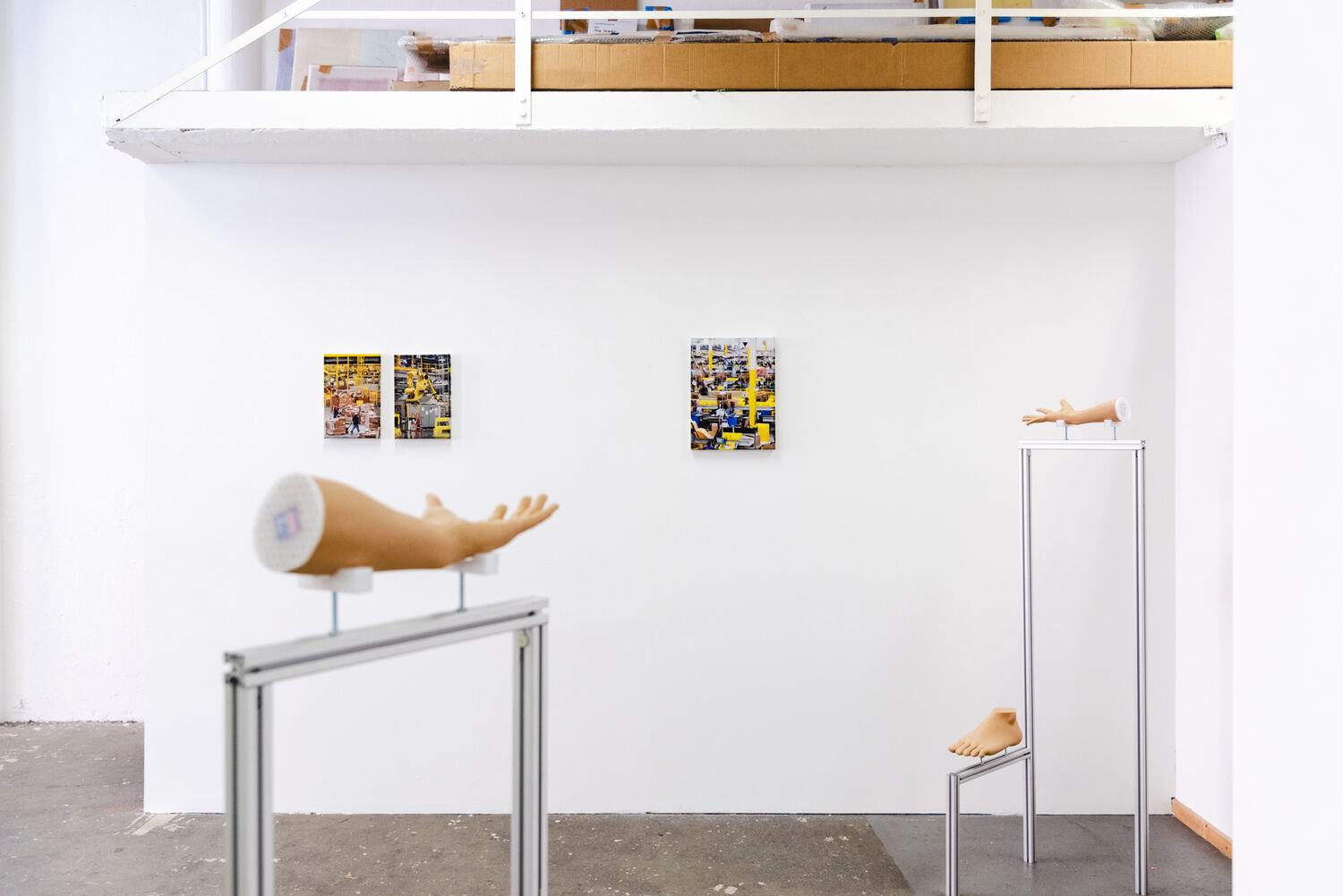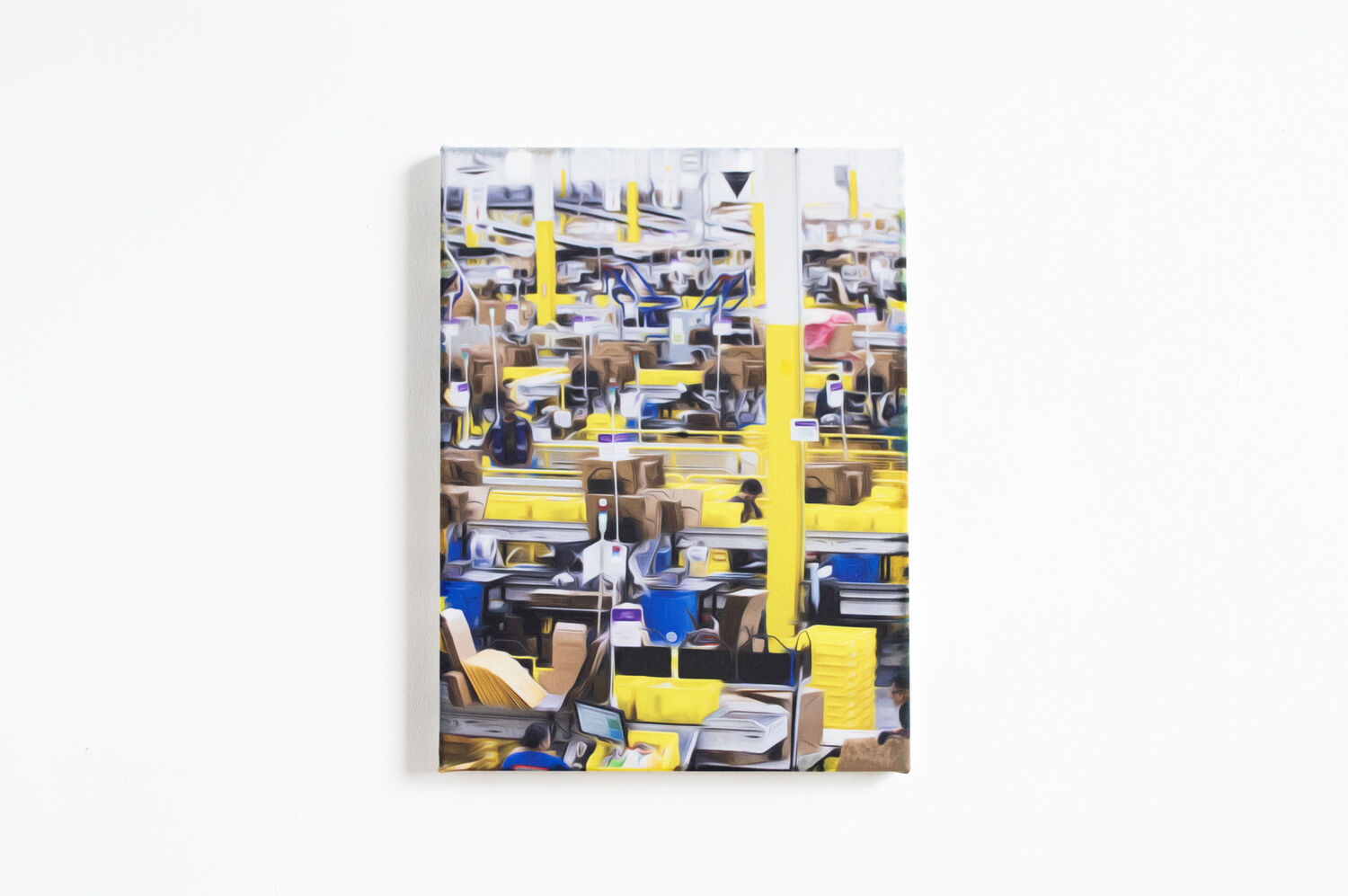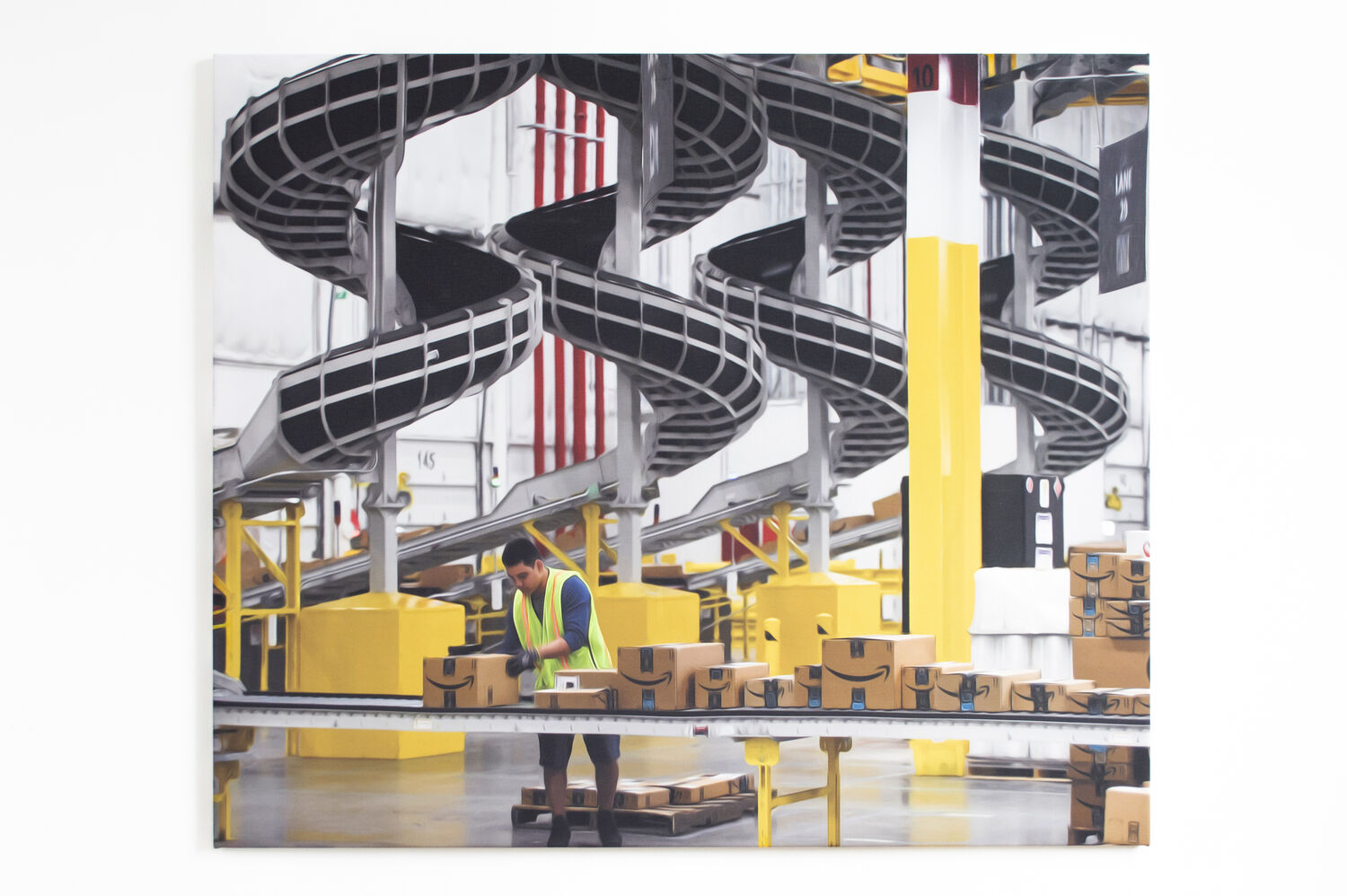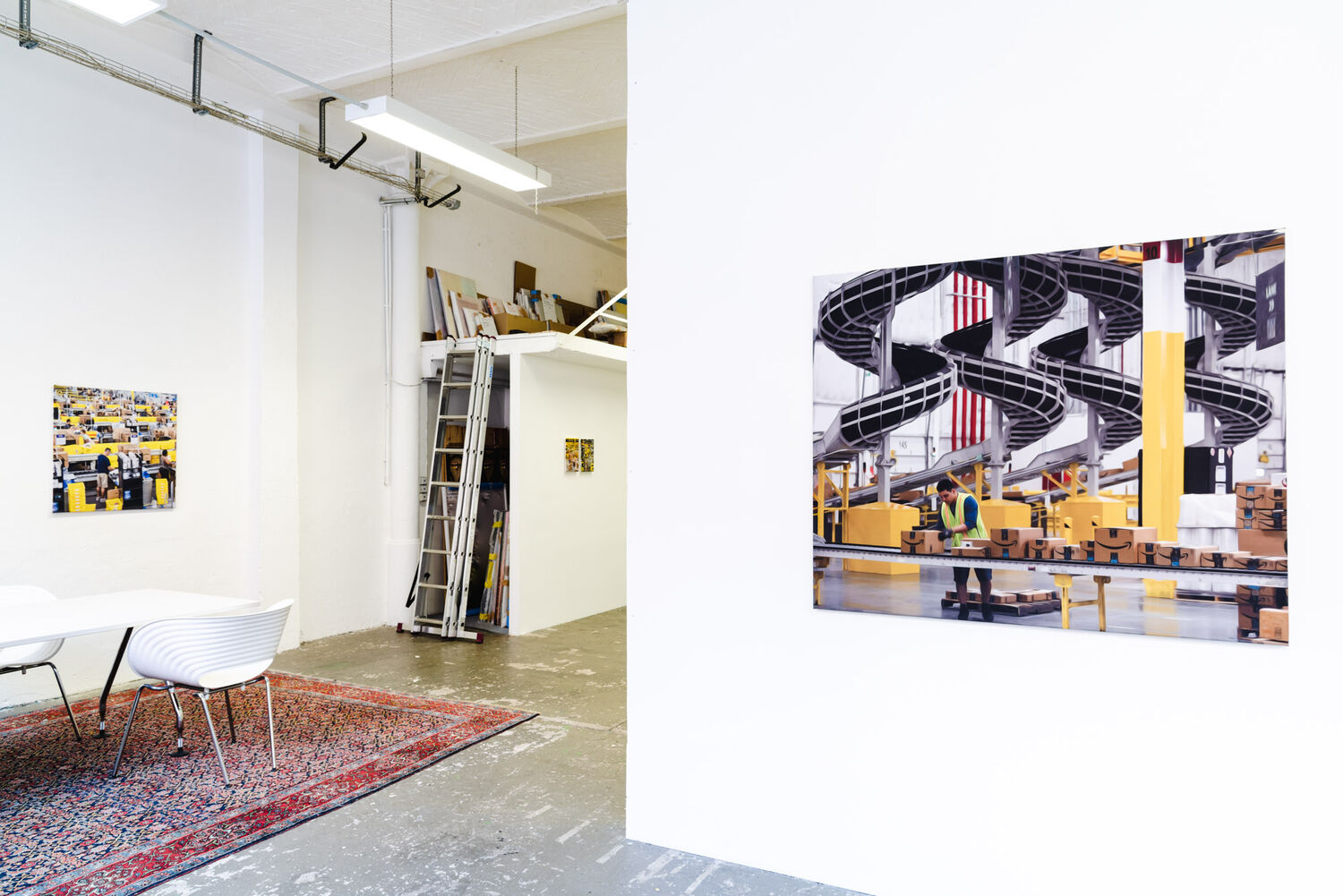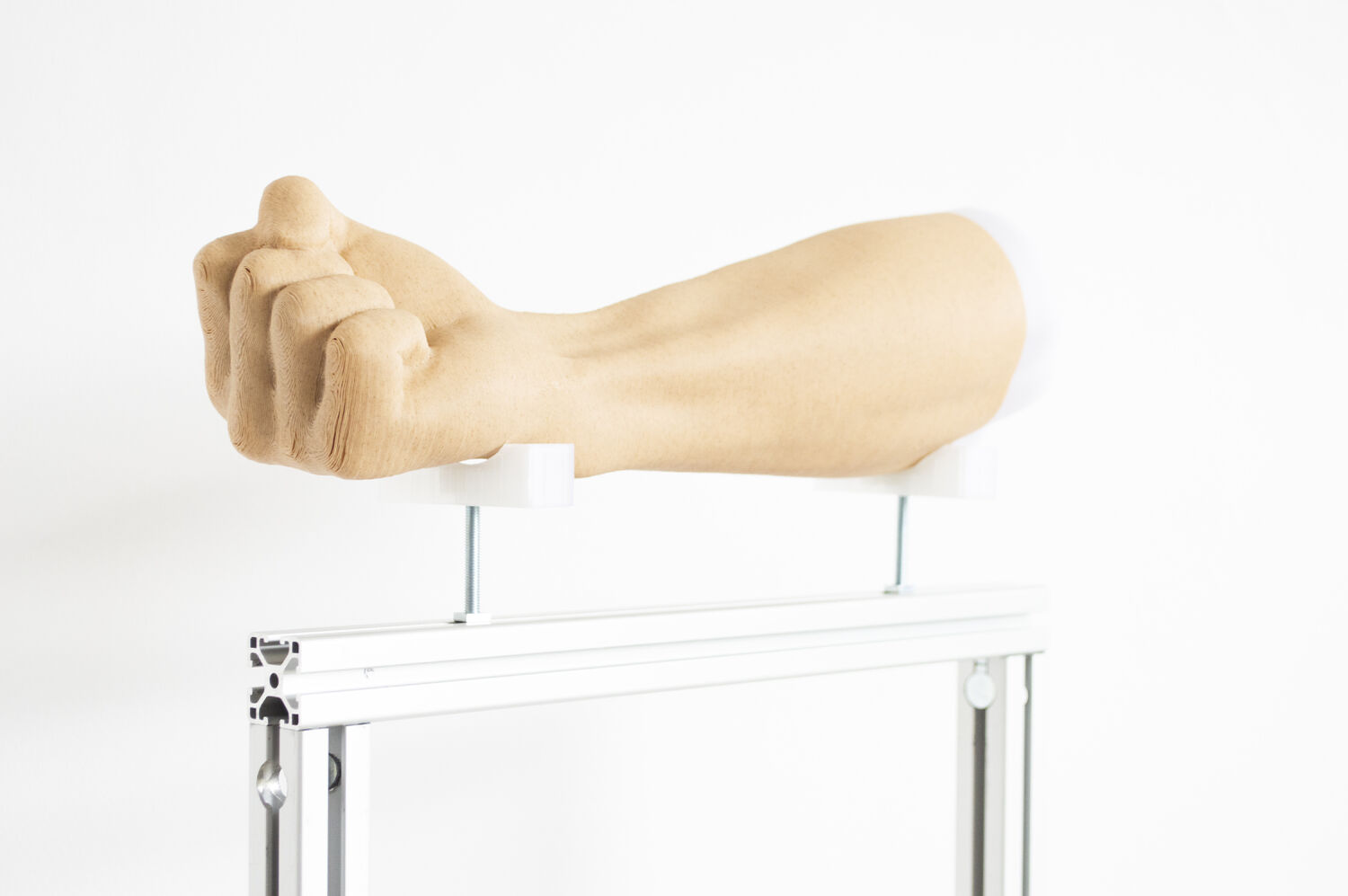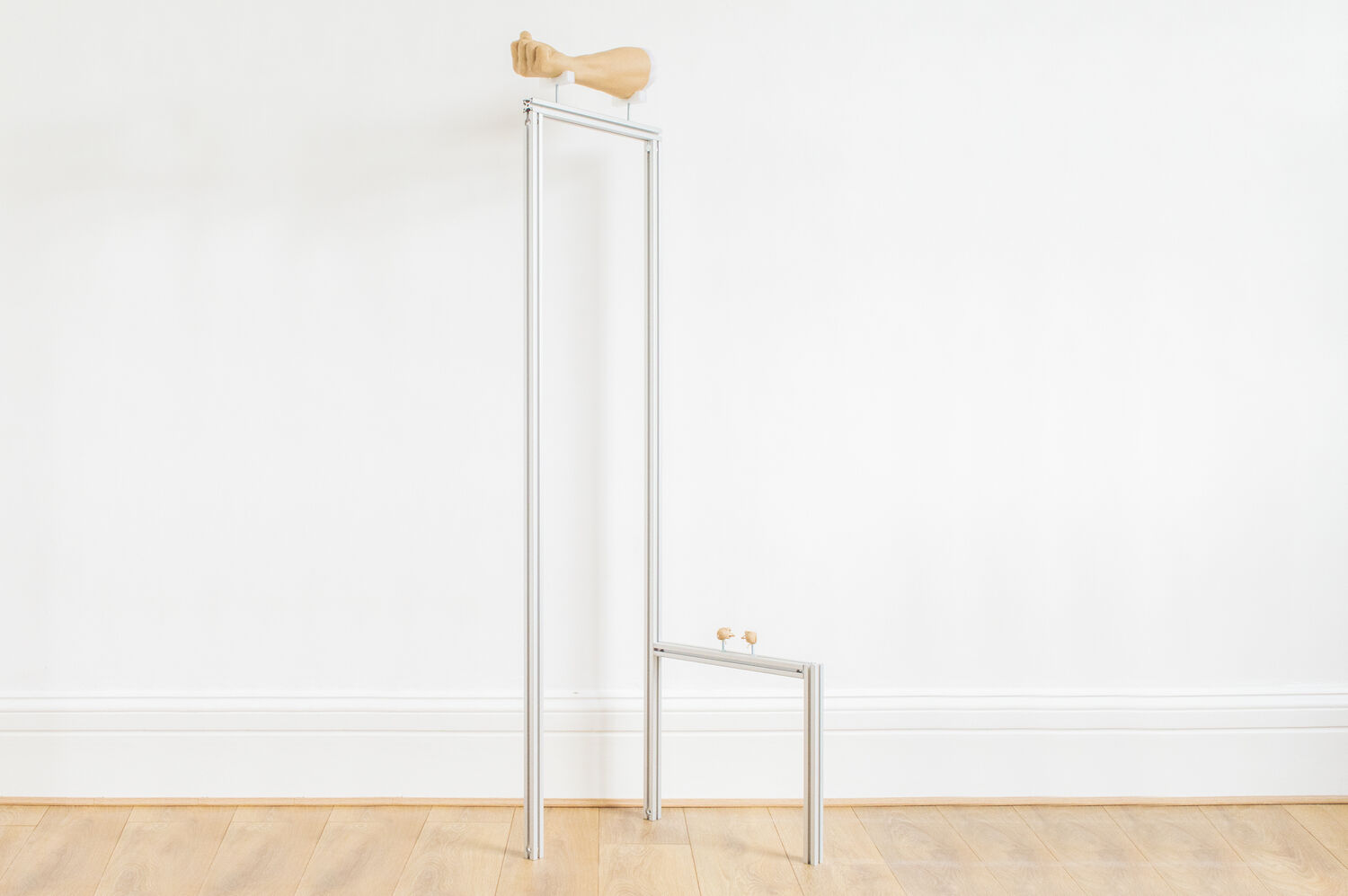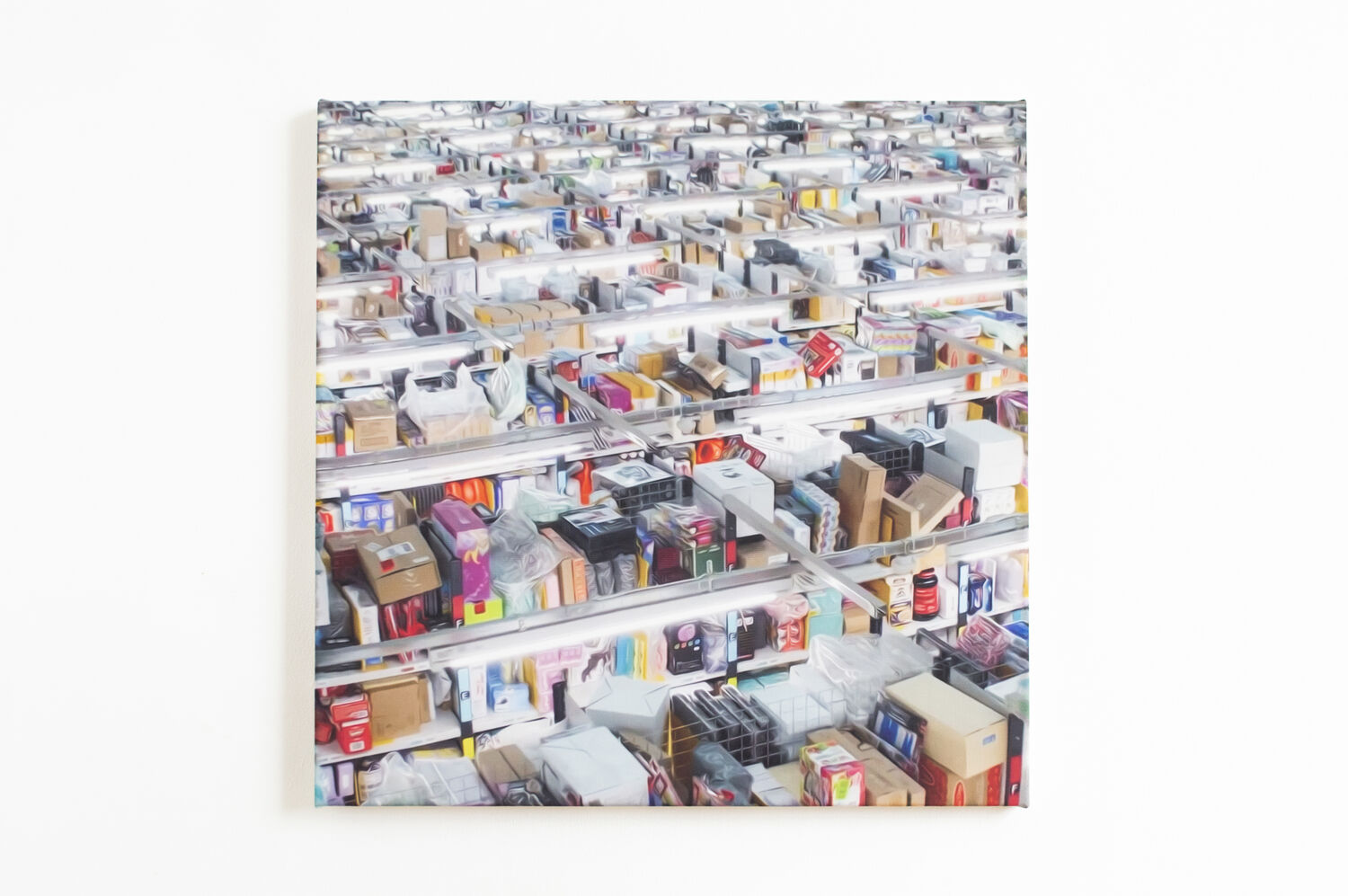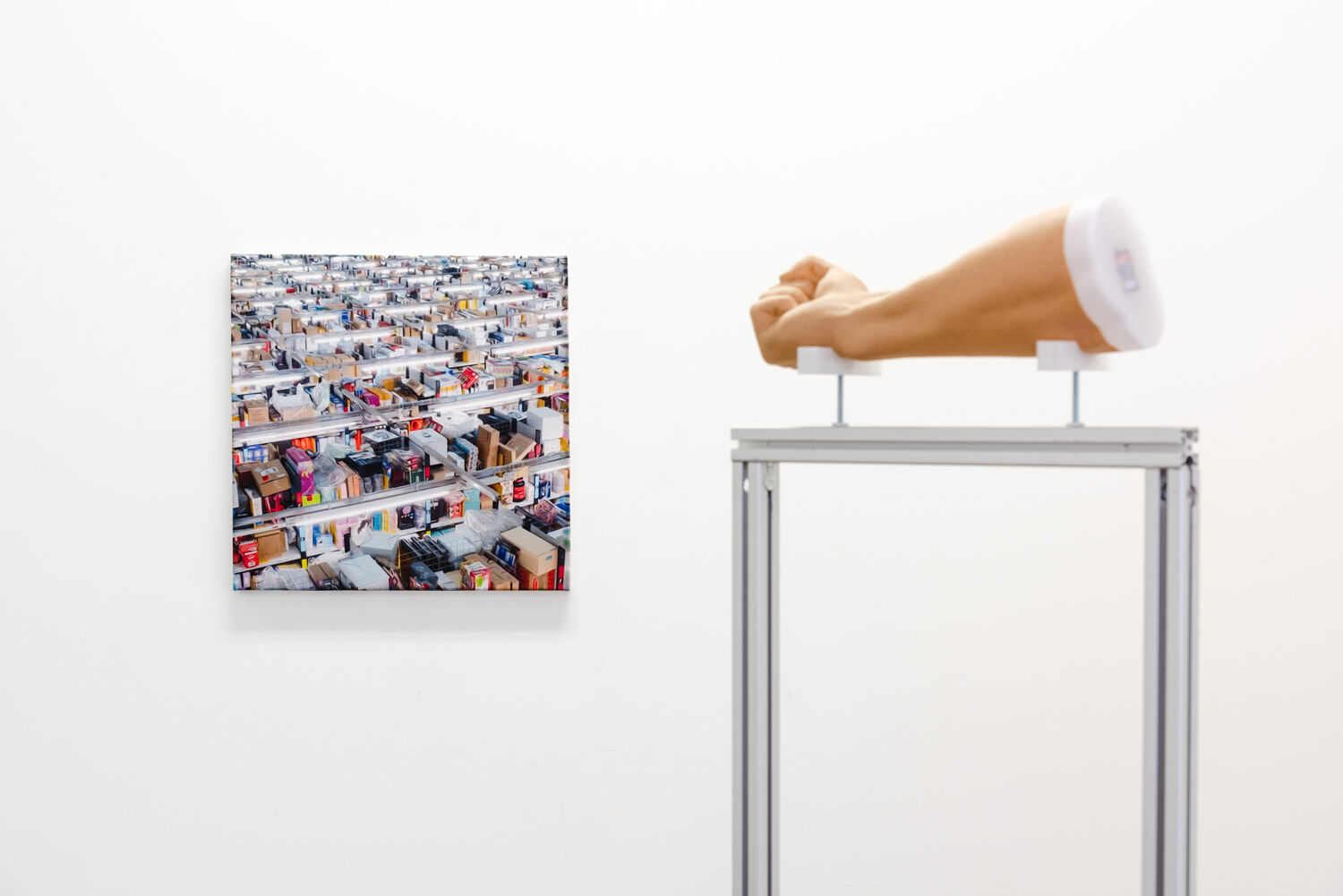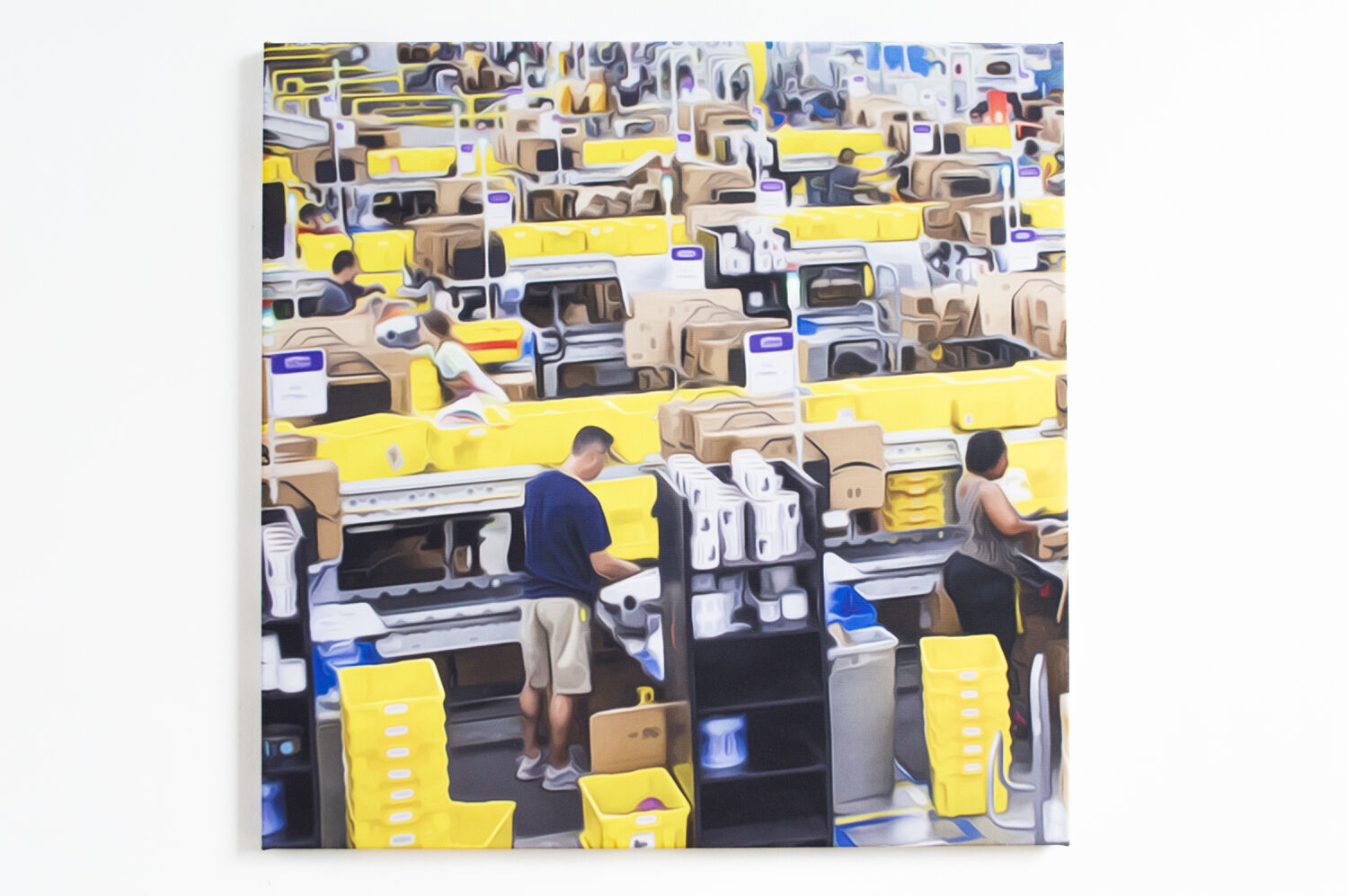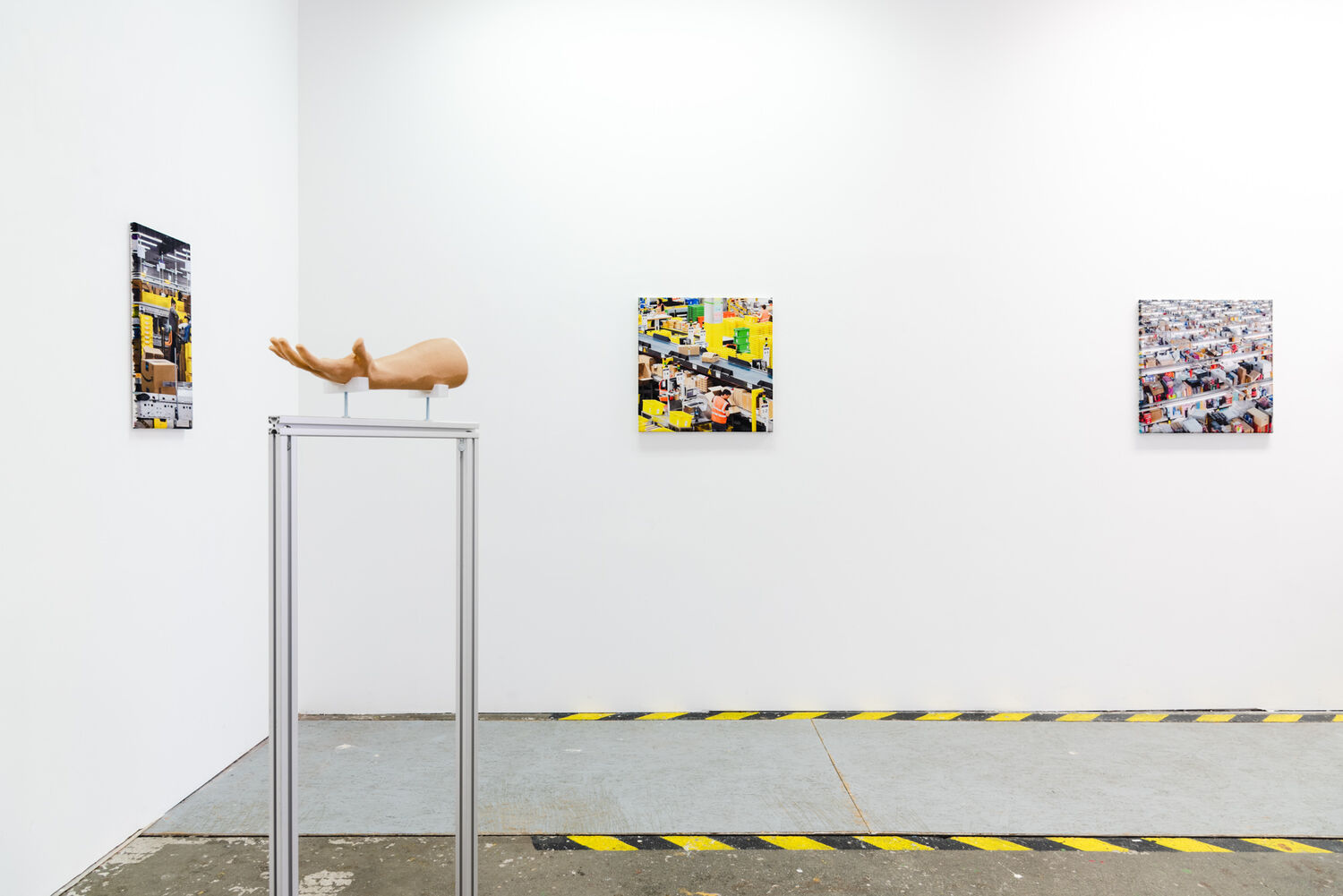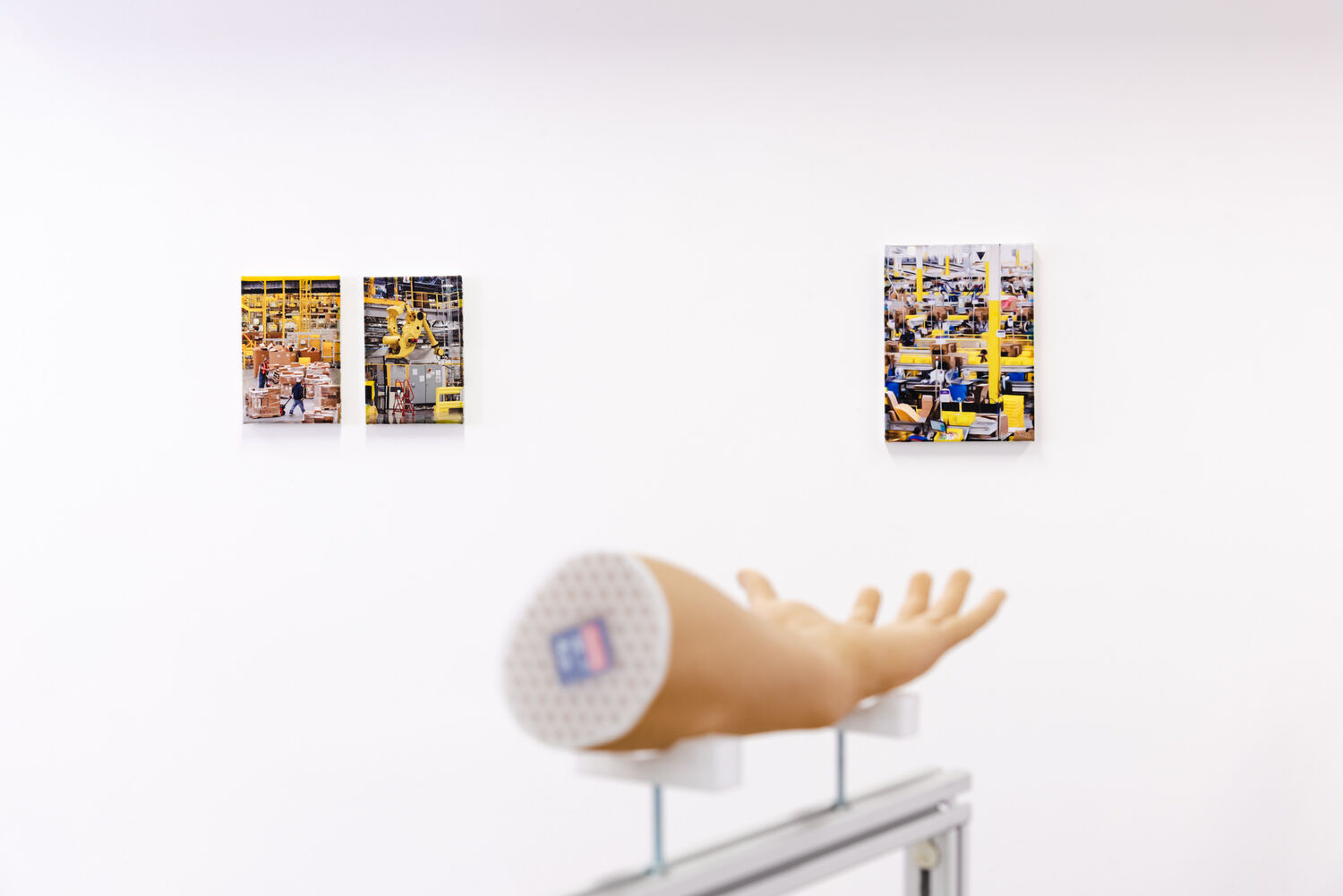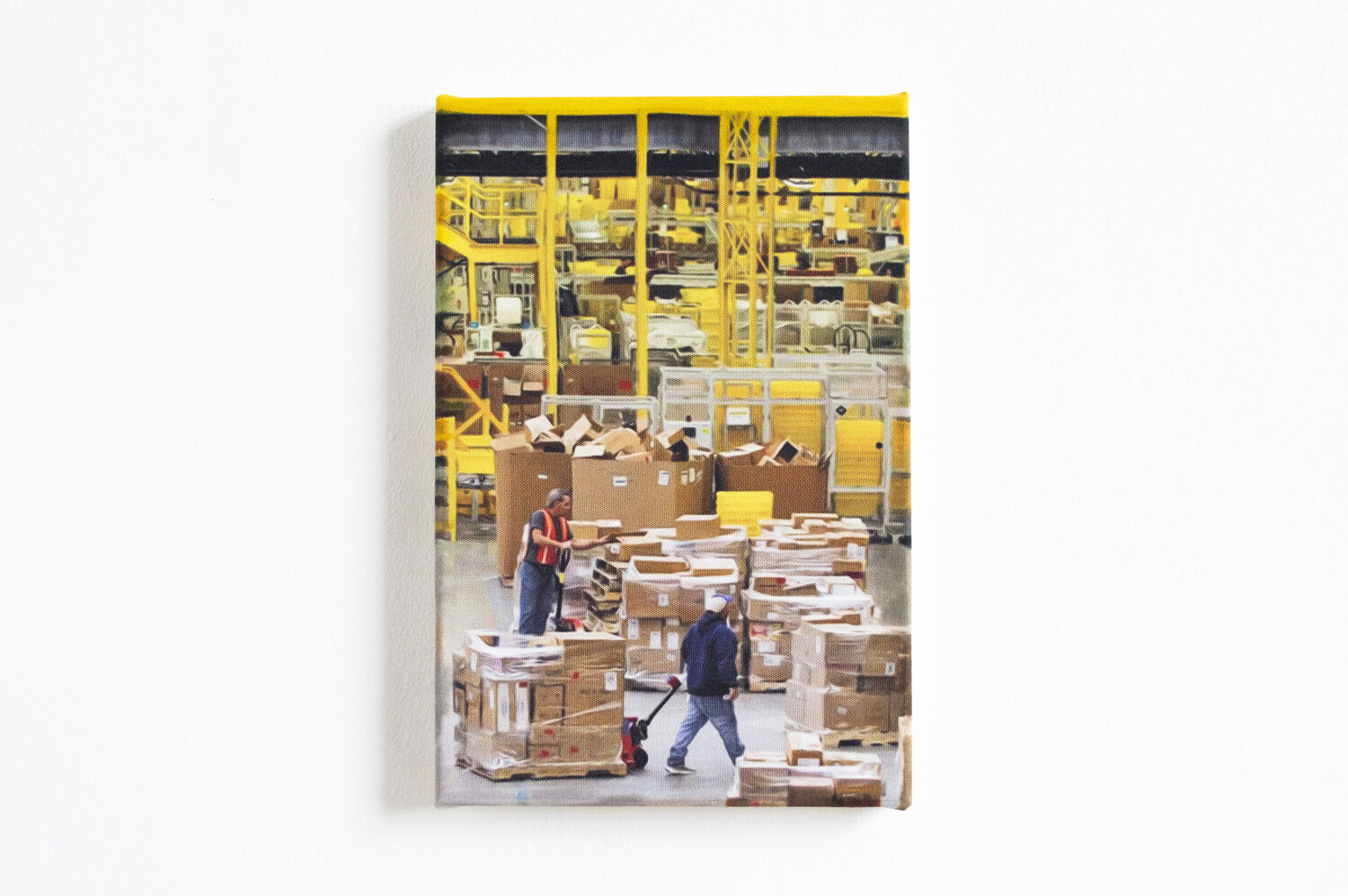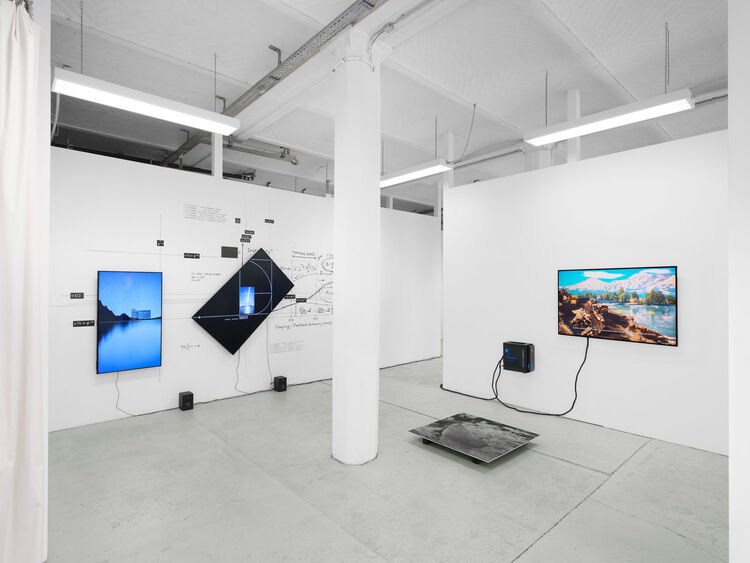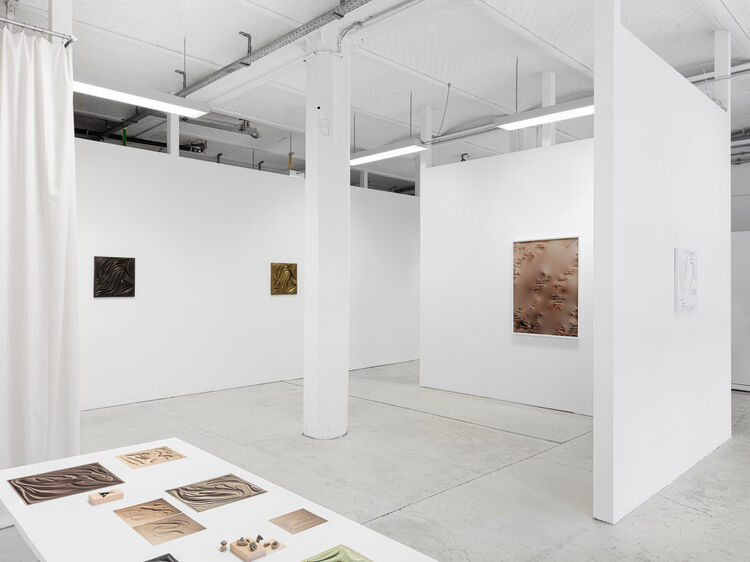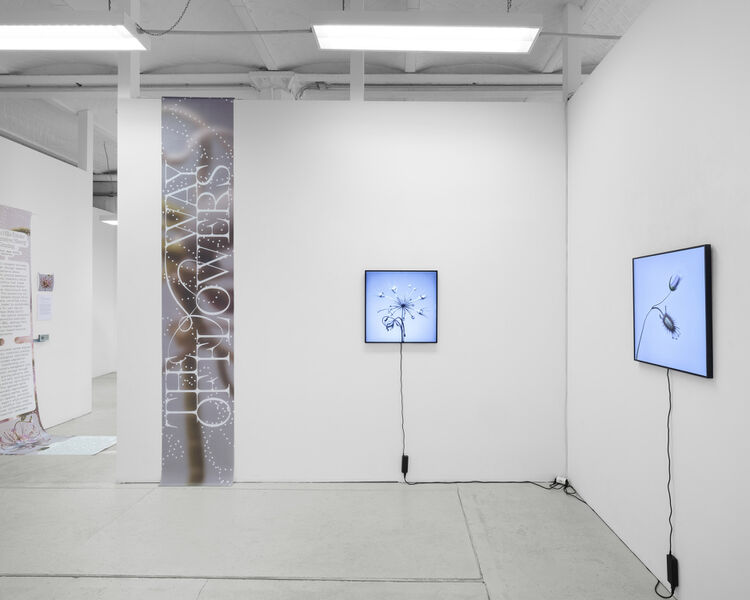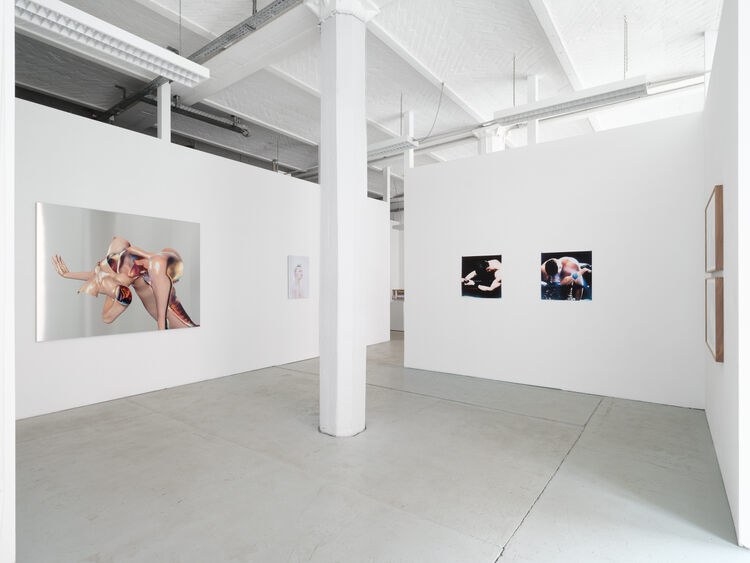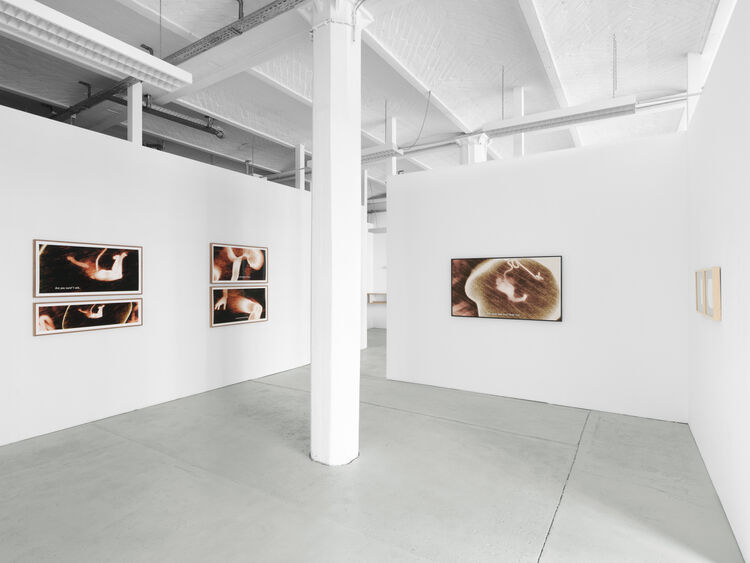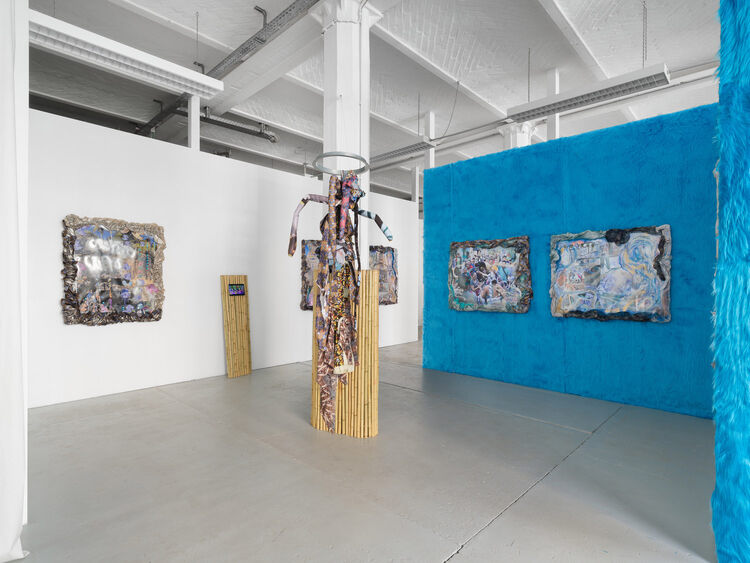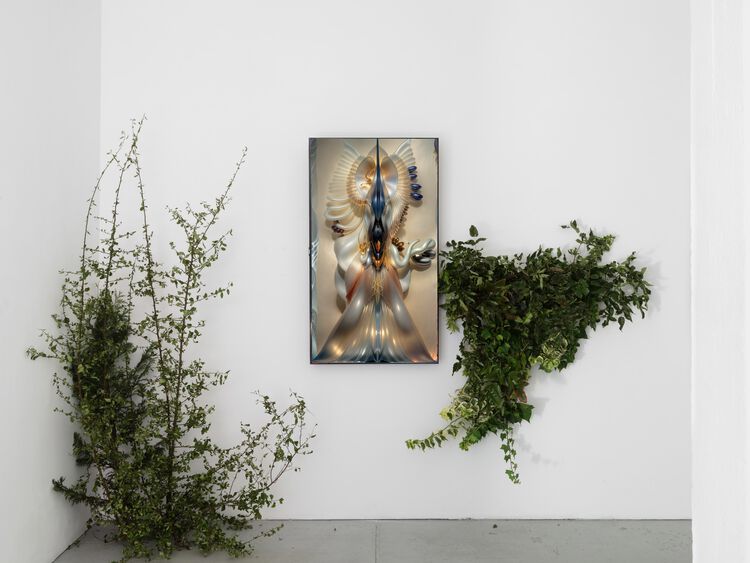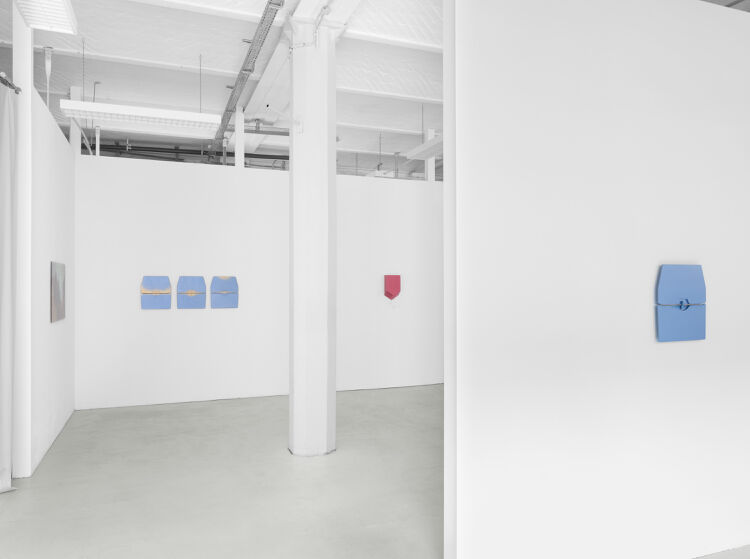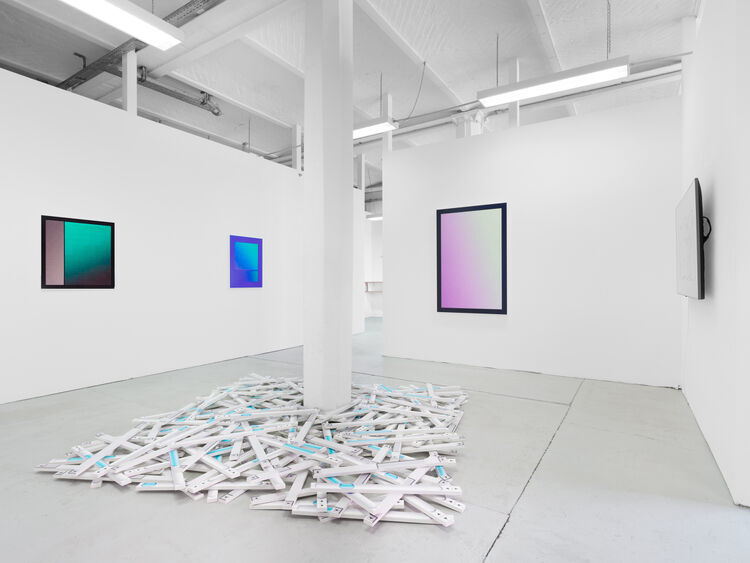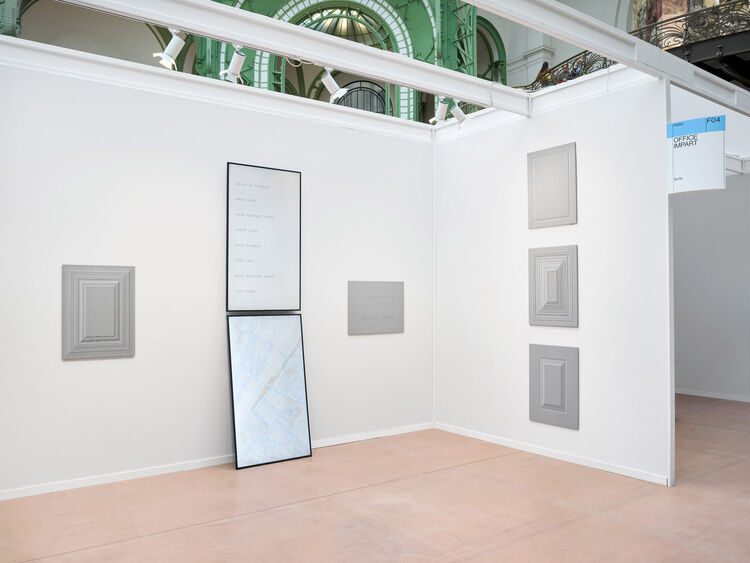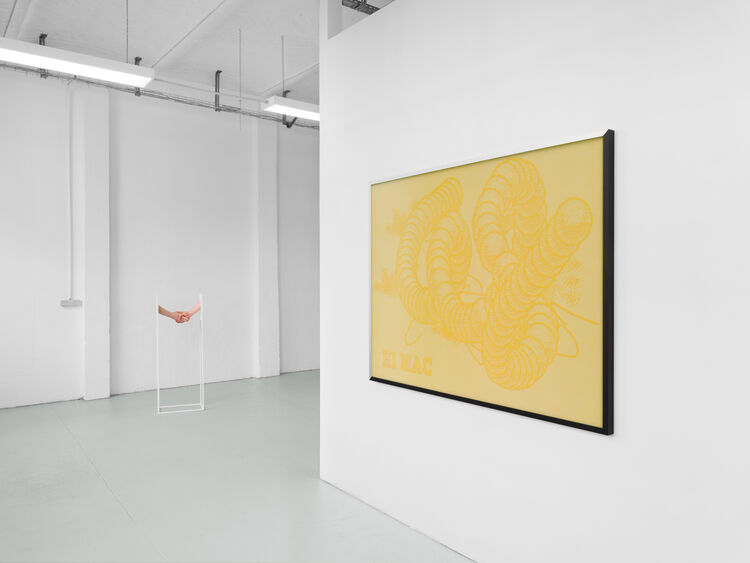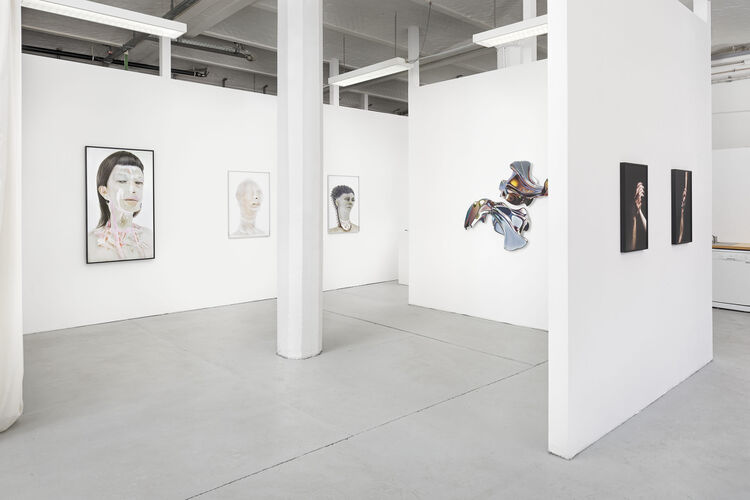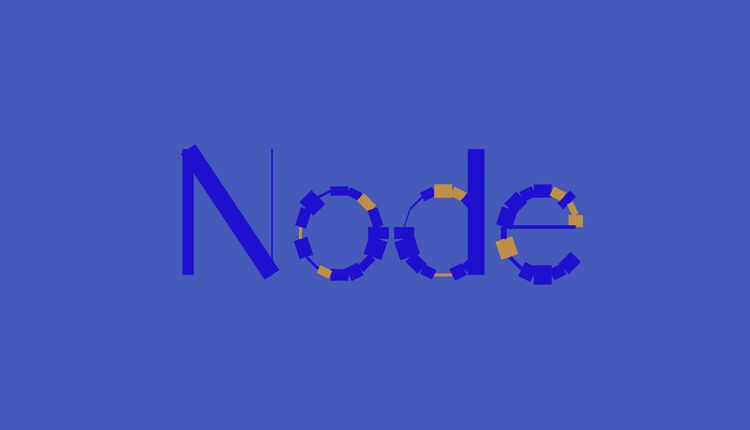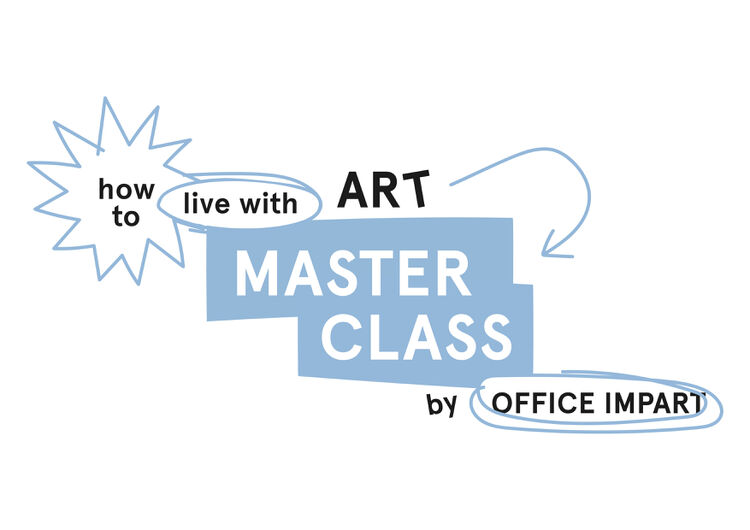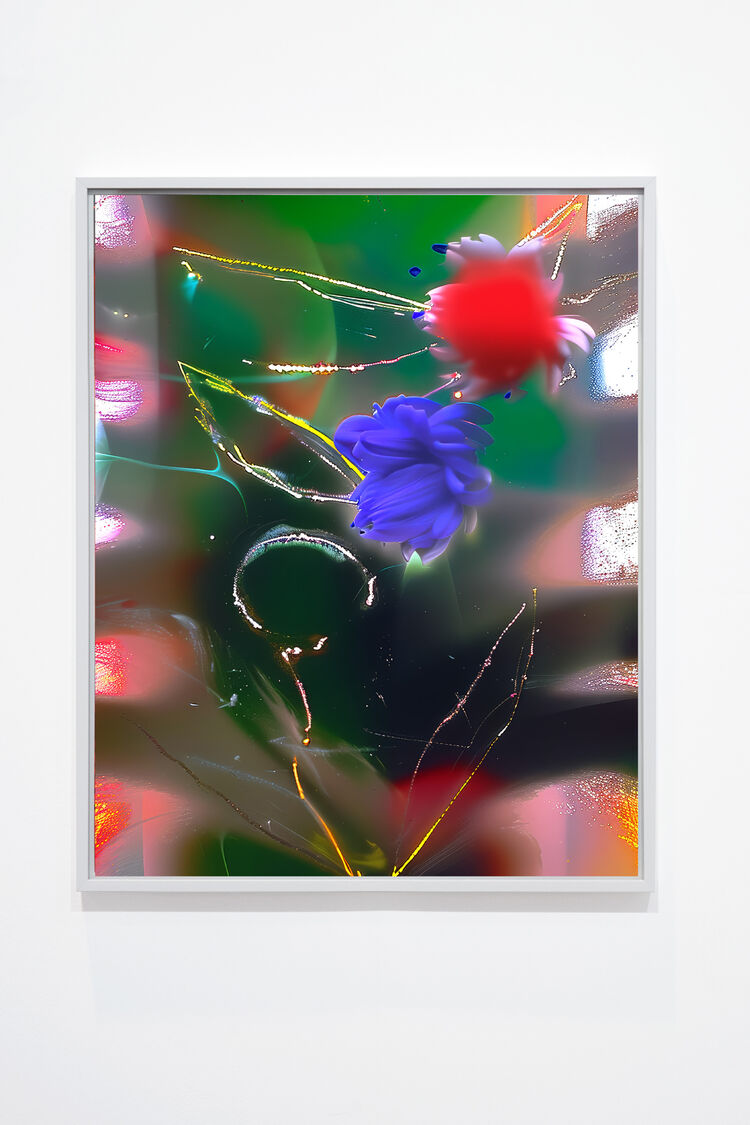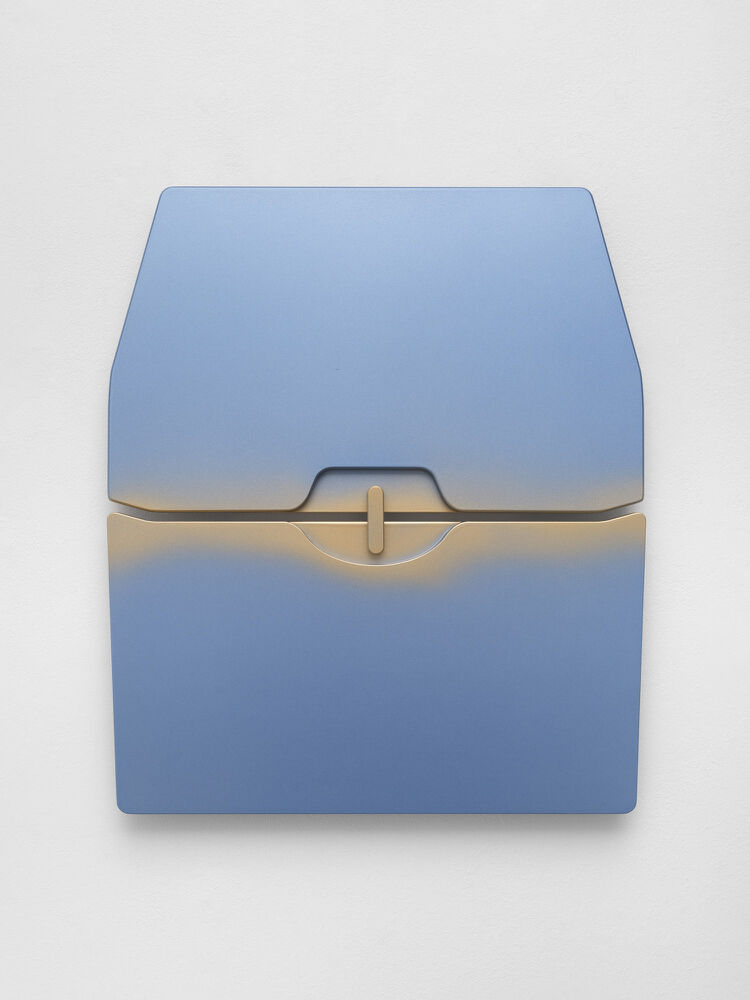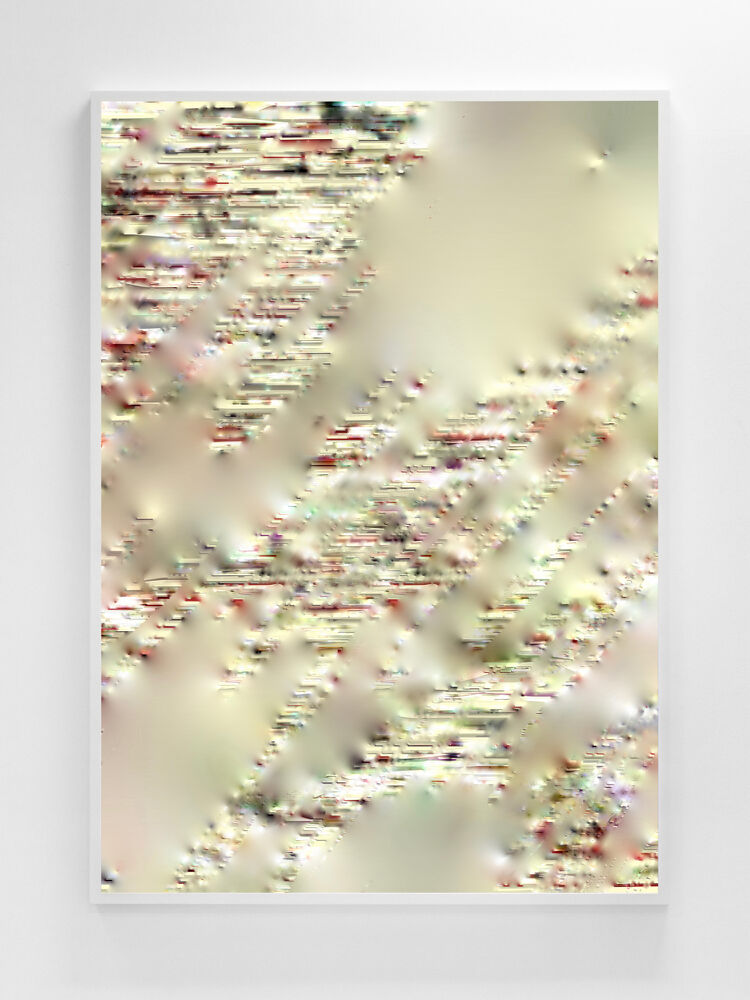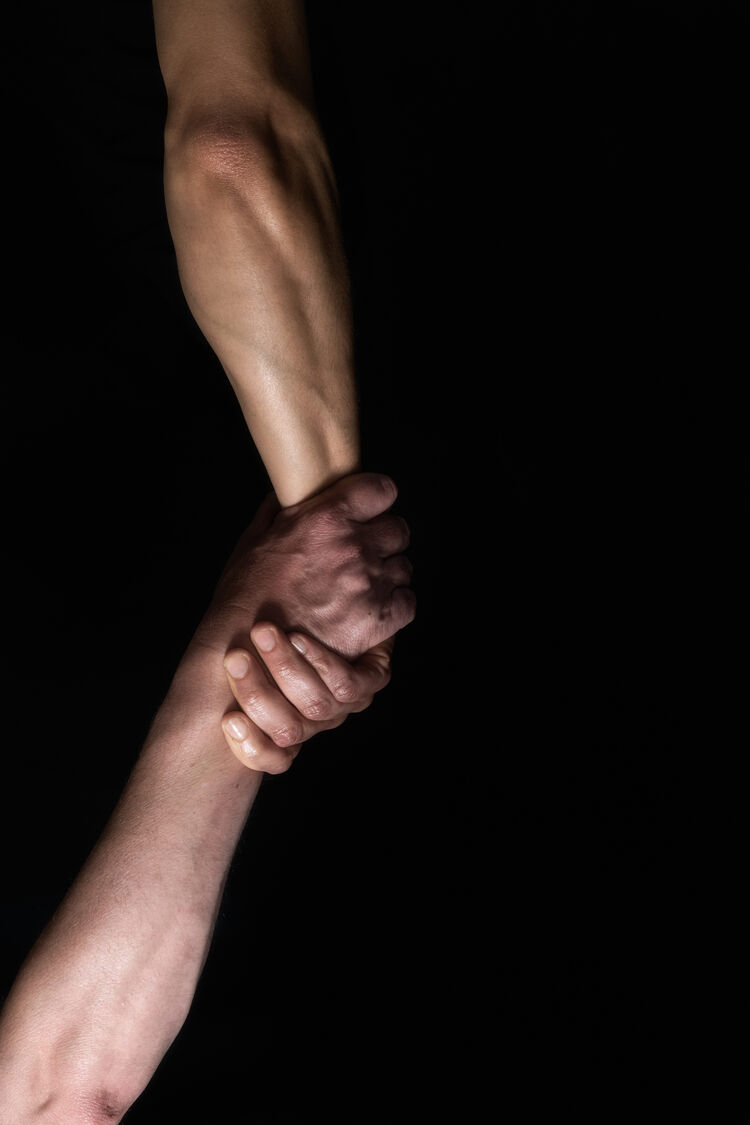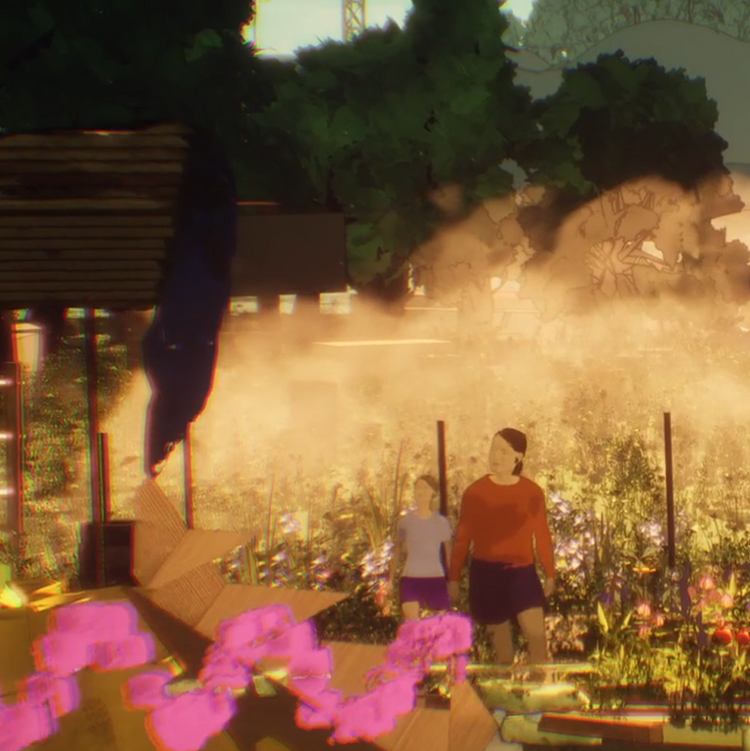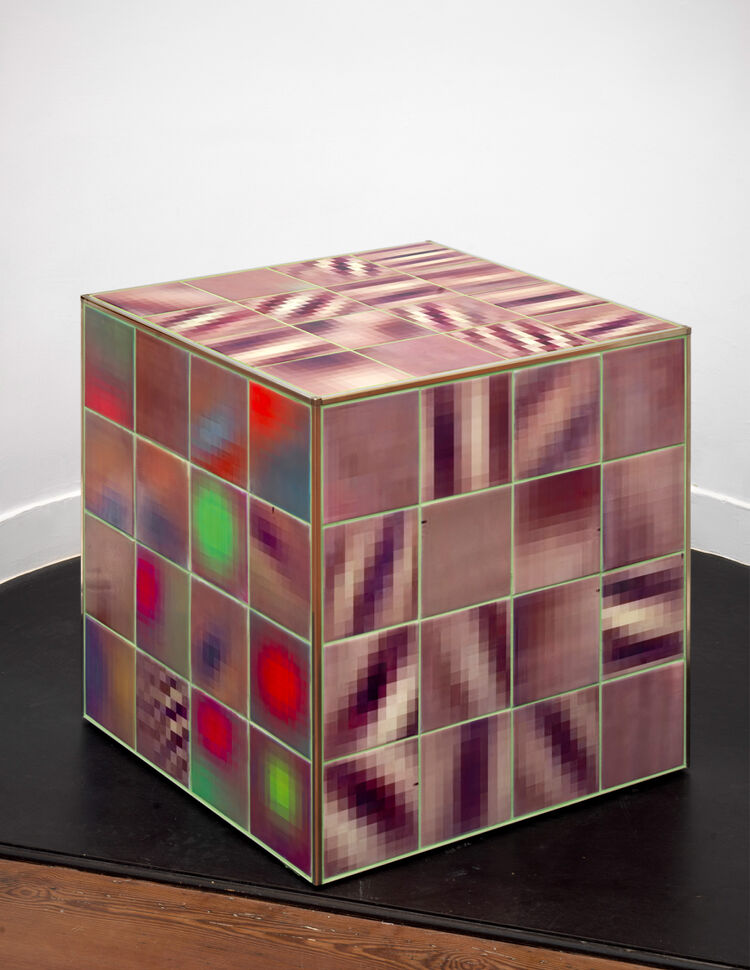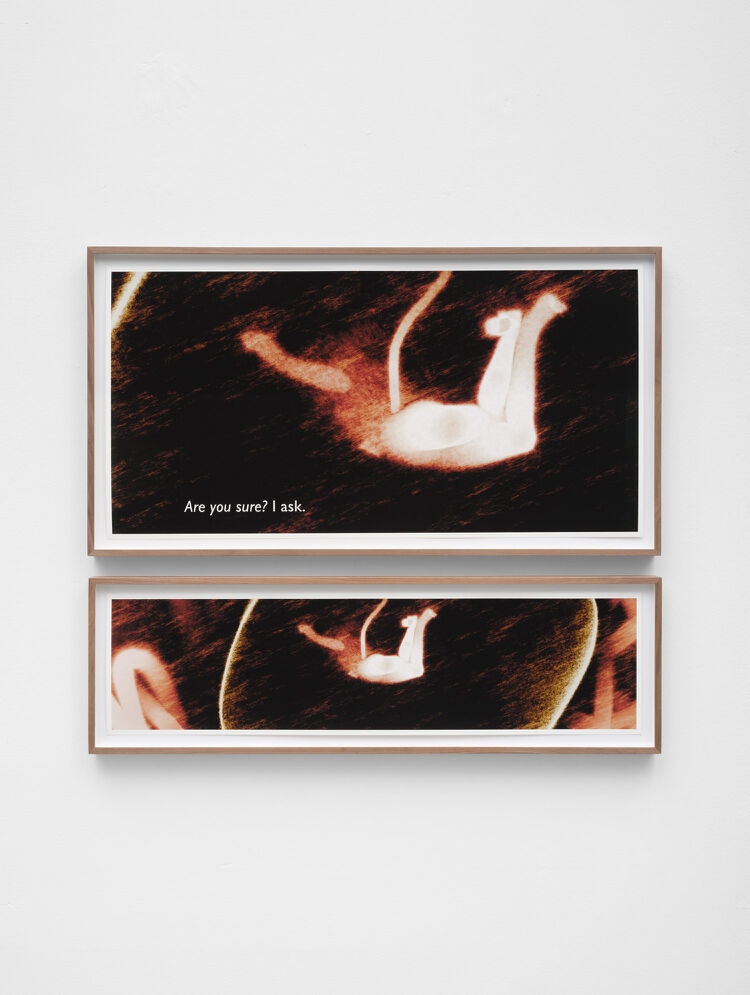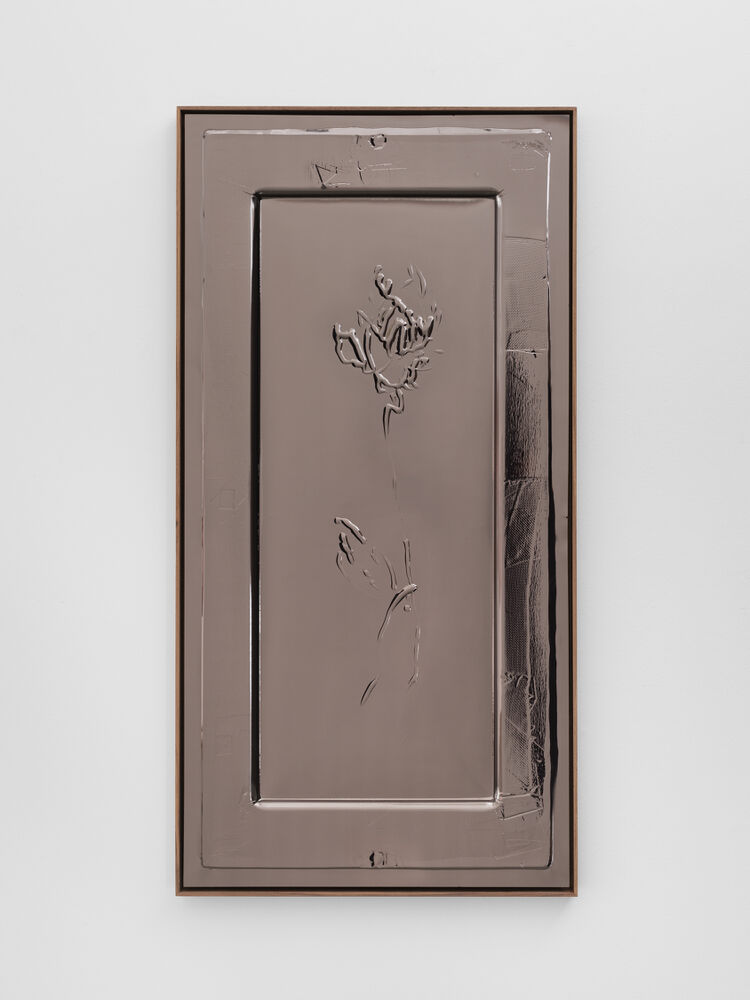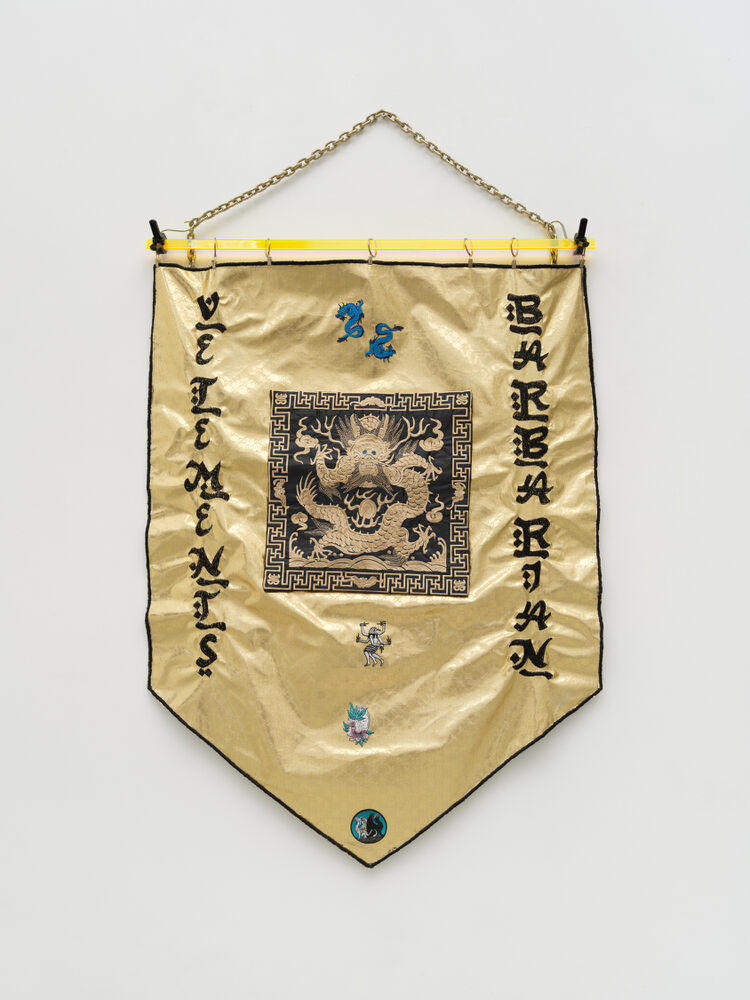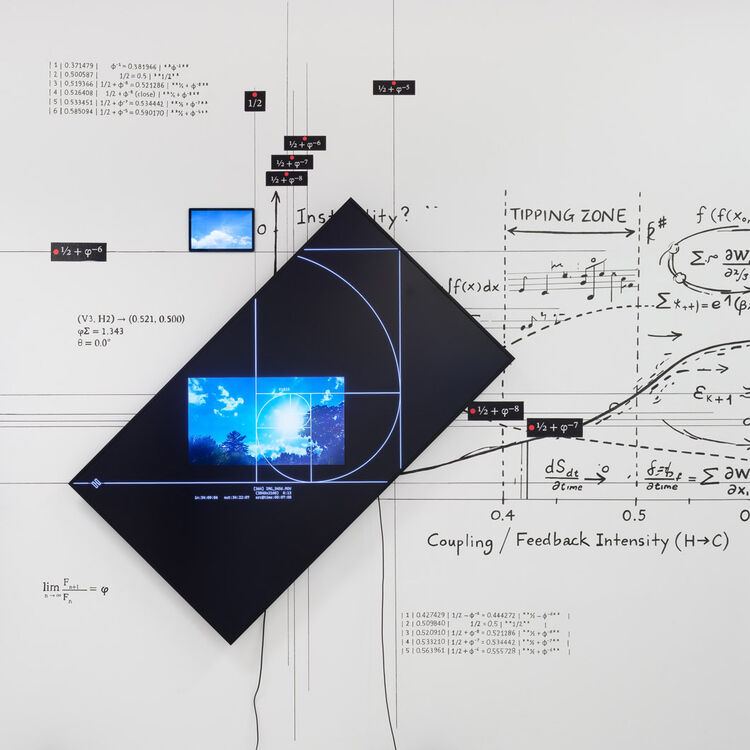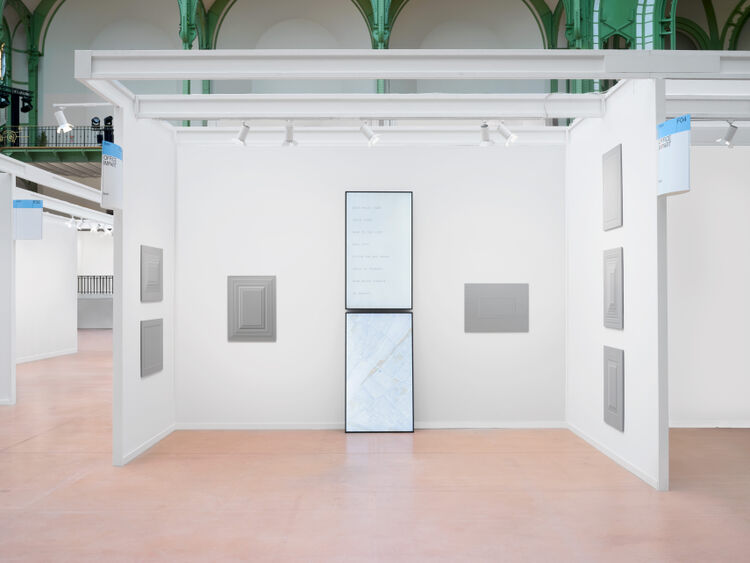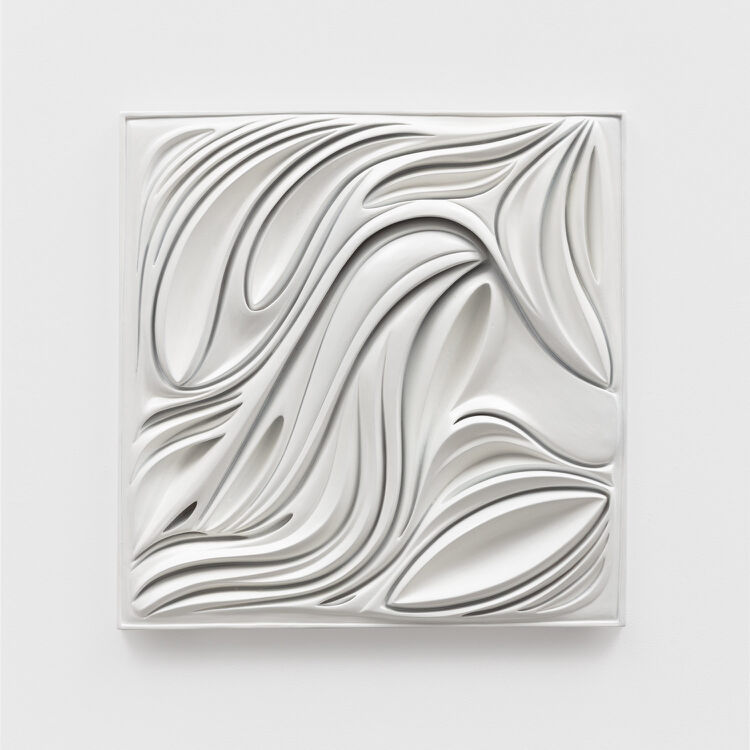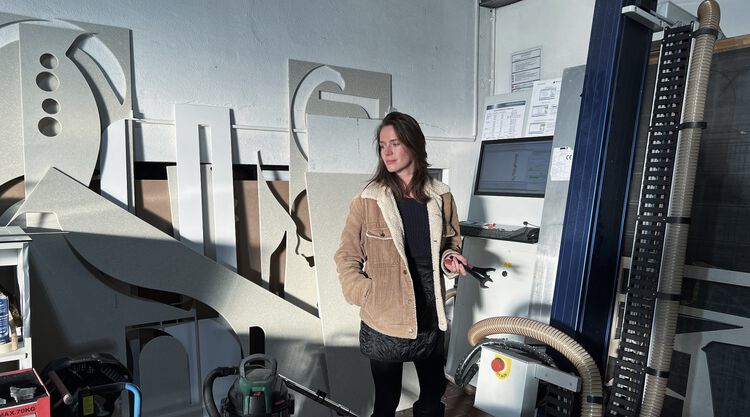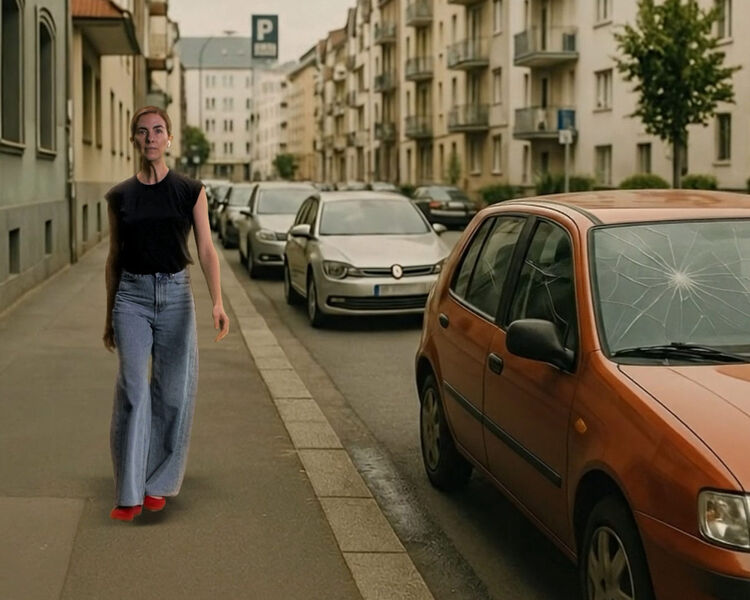Bob Bicknell-Knight 'It's Always Day One'
Bob Bicknell-Knight
„It's Always Day One“
April 23 – June 6th 2021
With „It's Always Day One“ we are very delighted to present Bob Bicknell-Knights first solo exibition in Berlin.
We are open by appointment – book a slot here.
As part of an ongoing research-based body of work, concerning Amazon Fulfillment Centres and Amazon's relationship to it's human employees, Bicknell-Knight is currently producing a number of paintings depicting Amazon workers and their warehouse jobs. Amazon employees, loosely dubbed Amazonians, spend countless hours within Amazon warehouses undergoing a variety of different jobs that will soon be automated, replaced by artificially intelligent machines. Human workers are already being treated as if they are machines within these warehouse environments, with timed bathroom breaks and constant surveillance. Their job titles, ranging from Picker to Water Spider, detail what menial, physically demanding and incredibly repetitive activity they'll be undergoing on a daily basis, from picking up and scanning products to wrapping pallets. These employees are aware of their precarious position but, as Amazon continues to dominate global markets, it's increasingly difficult to find work within this industry and to not be treated like an emotionless machine. Bicknell-Knight's paintings detail the insides of Amazon warehouses, working from photos released to global news outlets alongside tours of Amazon facilities, as a vehicle for speaking about automation, forms of hyper-capitalism and unstable warehouse environments.
The sculptures are made from an aluminium modular extrusion system commonly used in autonomous forms of production and to build office partitions. Sitting atop these rigid structures are 3D printed body parts with SD cards embedded within. Each artwork in the scu;ptural series represents a human worker and the body part that they use on a regular basis in their job whilst working for Amazon, body parts that will soon be replaced by intelligent automated machines. Within each 3D print an SD card is embedded that contains an interview with the affected employee, speaking about their experience working for the multinational technology company. The embedded technology references the ongoing practice of unpaid and underpaid labourers hiding ‘cry for help’ notes in different products, attempting to alert authorities to unsafe working conditions and forms of modern day slavery.
Bicknell-Knight's paintings are hybrid artworks, combining digital technologies with traditional painting techniques. His paintings begin as digital images, manipulated and created on Photoshop and circulated online through a number of social media platforms. They are first documented as if they are a work in progress, mounted on a wall in an artist studio, complete with a digitally imposed palette and empty cups of coffee. Staging the paintings using found online imagery, the paintings appear in studios and living rooms as actualized art objects. Sitting between the fakeness of a three-dimensional render and the image as function, the paintings appear to be authentic, highlighting the misconceptions of viewership through social media and other digital platforms. These images of faux studio spaces are an ongoing online performance for the artist, creating the persona of a painter. Once posted online, the works are produced as physical, real world objects. The digital images are printed onto canvas, stretched and then partly painted onto with acrylic paint, with the offline artist’s hand interacting with the original online digital image, creating a hybrid painting.
